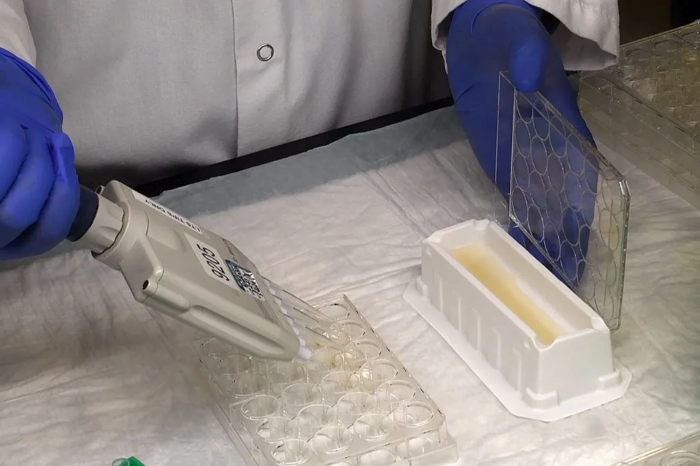Data obtained from the in vitro investigation of test compounds is crucial for effectively extrapolating in vivo ADMET/DMPK characteristics.

Image Credit: BioIVT
Various in vitro test systems, such as microsomes and other subcellular fractions, can generate valuable data for drug discovery programs. However, primary hepatocyte incubations remain the gold standard for in vitro compound assessment due to their ability to provide more accurate predictions of in vivo stability and clearance.
In vitro studies like these offer researchers essential information for developing safe dosing parameters for subsequent in vivo testing. These incubations are typically performed using pooled cryopreserved primary hepatocytes in suspension cultures. Such assays generate a diverse data set, which can be used to:
- Predict the intrinsic clearance of compounds.
- Ascertain the number of metabolites formed.
- Evaluate the potential for reactive and/or toxic metabolite formation.
- Assess the inhibition of endogenous metabolic enzymes.
- Determine the most representative small animal model for toxicology studies prior to first-in-human studies.
Although the experimental design of these assays may seem straightforward, scientists unfamiliar with these studies might not fully appreciate the challenges of working with cryopreserved primary hepatocytes.
Over the years, the steps, details, and procedures necessary for a successful in vitro study have been refined through research and trial and error. A thorough understanding of these procedures is crucial for significantly enhancing the quality and reproducibility of the data generated by such assays.
Key considerations for successful in vitro cryopreserved primary hepatocyte incubations
Limiting the number of compounds tested
It is advisable to limit the number of compounds tested in each assay, especially when working with a new assay type. Over-manipulation can damage primary hepatocytes, and since this assay is limited to just a few hours in suspension culture, it is essential to work quickly and carefully to make the most of the limited culture window.
Adding cells to pre-plated test articles to start the incubation
It is possible to save time by initiating the start of the incubation by adding hepatocytes to the incubation last. This approach is more rapid and efficient than adding individual test compounds to incubation wells one at a time.
Adding the cells last may also improve experimental efficiency, negating the need to stagger initiation and sampling based on a more efficient pipetting pace. However, this depends on the number of compounds being assayed.
Limiting organic solvent
It is advisable to limit the volume of organic solvent used in incubation to ≤ 0.1 % of the total incubation volume.
Higher concentrations of organic solvents may lead to unexpected enzyme activities. In cases where solubility challenges prevent the use of less than ≤ 1.0 % of organic solvent, it may be possible to accommodate the higher concentration by adjusting the vehicle controls.
Using incubation plates with larger surface area per well and small incubation volumes
Using larger wells enables more thorough mixing of incubation volume when rocked, for example, 250 µL incubation in a 24-well plate. This approach ensures an efficient volume-to-surface area ratio, and it is possible to leverage a multichannel pipette when working with larger wells.
Group incubation on plates by timepoint rather than treatment groups
Preparing incubations according to individual time points enables the removal and collection of each time point without exposing subsequent time points/plates to unwanted temperature shifts.
This approach is also beneficial because there is no need to remove later time point plates from the incubator while sampling earlier time points.
Sampling each well in its entirety instead of repeated sampling from a single, large incubation volume
Sampling each well in its entirety ensures that the number of hepatocytes in each sample is consistent across time points.
This approach is advantageous because primary hepatocytes are heavier than other cell types, with the tendency to settle at the bottom of the well more quickly. When this occurs, it can be challenging to ensure accurate sampling while leaving behind a consistent quantity of hepatocytes in each well.
Any steps taken to ensure cells’ homogenous suspension could lead to the incubation being exposed to undesirable temperature shifts, leading to greater cell damage or death. These extra manipulations can ultimately impact data quality.
Adding stop solution to the 0-minute time point plate prior to adding hepatocytes
The addition of a stop solution before the addition of hepatocytes removes any risk of hepatocyte metabolism. This is especially advantageous when the test article is extensively metabolized in a short time.
Summary
The general protocol and best practice guidance provided here offer a useful starting point for scientists working with cryopreserved primary hepatocytes in the lab. BioIVT products can be used to modify and optimize hepatocyte suspension incubations, helping researchers achieve optimal results in their experiments.
Suspension Hepatocyte Metabolism Incubation Tips and Best Practices
Video Credit: BioIVT
Acknowledgments
Produced from materials originally authored by Dr. Chris Bohl and Melissa Evans from BioIVT.
About BioIVT
BioIVT, formerly BioreclamationIVT, is a leading global provider of high-quality biological specimens and value-added services. We specialize in control and disease state samples including human and animal tissues, cell products, blood and other biofluids. Our unmatched portfolio of clinical specimens directly supports precision medicine research and the effort to improve patient outcomes by coupling comprehensive clinical data with donor samples.
Our Research Services team works collaboratively with clients to provide in vitro hepatic modeling solutions. And as the world’s premier supplier of ADME-Tox model systems, including hepatocytes and subcellular fractions, BioIVT enables scientists to better understand the pharmacokinetics and drug metabolism of newly discovered compounds and the effects on disease processes. By combining our technical expertise, exceptional customer service, and unparalleled access to biological specimens, BioIVT serves the research community as a trusted partner in ELEVATING SCIENCE®.
Sponsored Content Policy: News-Medical.net publishes articles and related content that may be derived from sources where we have existing commercial relationships, provided such content adds value to the core editorial ethos of News-Medical.Net which is to educate and inform site visitors interested in medical research, science, medical devices and treatments.